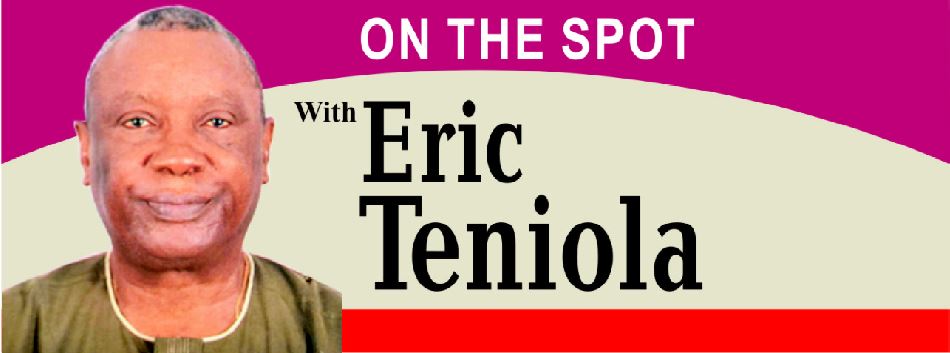By Eric Teniola
The intelligence community must be totally reinvented and it can be done; the first step is to fund it and the second is to train effectively its personnel
ESTABLISHMENT of advisory councils: (1) There shall, in the interest of national security, be established two advisory councils, that is to say – (a) the National Defence Council; (b) the National Security Council. (2) The National Security Council shall be charged with responsibility for matters relating – (a) to public security; and (b) generally to the structure, staff and other matters concerning the agencies set up under this Act.(3) The National Defence Council shall advise the President on all matters concerning the defence of the sovereignty and territorial integrity of Nigeria.
- Instruments relating to the advisory councils, the structure, etc., of the agencies. The President may, by an instrument under his hand make provisions with respect to the following matters, that is to say – (a) the composition, membership and appointment to the advisory councils established by section 5 (1) of this Act; (b) the structure of each of the agencies set up under this Act (including the designation and the appointment of the principal officers of the agency concerned) and the manner in which each agency is to be administered; (c) the manner in which the powers of each agency is to be exercised and the conferment on specified officers of the agencies, of the powers of a superior police officer; and (d) such other matters concerning or incidental to any of the matters mentioned in this Act as the President may deem fit. 7. Repeal, etc.
(1) The Nigerian Security Organisation Act is hereby repealed. (2) If any other law is inconsistent with the provisions of this Act, the provisions of this Act shall prevail and that other law shall, to the extent of the inconsistency, be void.” That was the last time a comprehensive reform was carried out by any government in terms of national security and intelligence.
The main purpose of these bodies is to provide information to policy makers that may help illuminate their decisions options. We call them hints. Call them intelligence agents, operation officers or desk officers, you can equally call them operation officers, analysts, field officers, rogue agents, detail officers or agent provocateurs. Their main duty is to collect information on any situation and report back to government.
ALSO READ: The intelligence community and the new challenges (2)
The role of intelligence in determining outcomes of battles and wars has varied dramatically across conflicts and time, contributing to wide differences in judgements about the importance of intelligence in war. Some analysts minimise the importance of intelligence while others argue it is essential. General Babangida carried out those reforms in 1986 almost 35 years ago.
No doubt the intelligence community is now facing major challenges both internal and external. For some of us who read constantly, Vince Flynn, Brad Thor, Animar Habid, Daniel Silva, K.J. Howe, Mark Greaney, Brad Taylor, Jack Carr and other spy authors appreciate the importance of intelligence in the running of government.
I do not know whether our intelligence community is fully funded enough but the EndSARS protest now offer an opportunity to fund it adequately. We must reposition our intelligence system to meet the new technological world. Things have changed and they are still changing.
The intelligence community must be totally reinvented and it can be done. The first step is to fund it and the second is to train effectively its personnel. The most important step is the complete restructuring of the intelligence community. The EndSARS protests have exposed the failure of the leadership of the intelligence community in Nigeria. It is left for government, if it cares, to effect this restructure immediately.
The transformation must be a revolution rather than an evolution. The community must be innovative and flexible capable of rapidly adopting the innovative technologies wherever they may arise. There has been too much talk about reforming the Nigeria Police Force after the EndSARS protests without thinking about the intelligence community.
The Police and the intelligence community go in pari-passu, very closely related. Many people see the intelligence community as only wearing dark glasses and following the president and governors. Their schedule is more than that. They collect data to guarantee our security. In short they are our foot soldiers.
I do not know the role played by the officers of the three agencies referred to above; that is: Defence Intelligence Agency, National Intelligence Agency and State Security Service in the EndSARS protests that we have just witnessed.
To be concluded next week…
The post The intelligence community and the new challenges (3) appeared first on Vanguard News.

Comments
Post a Comment